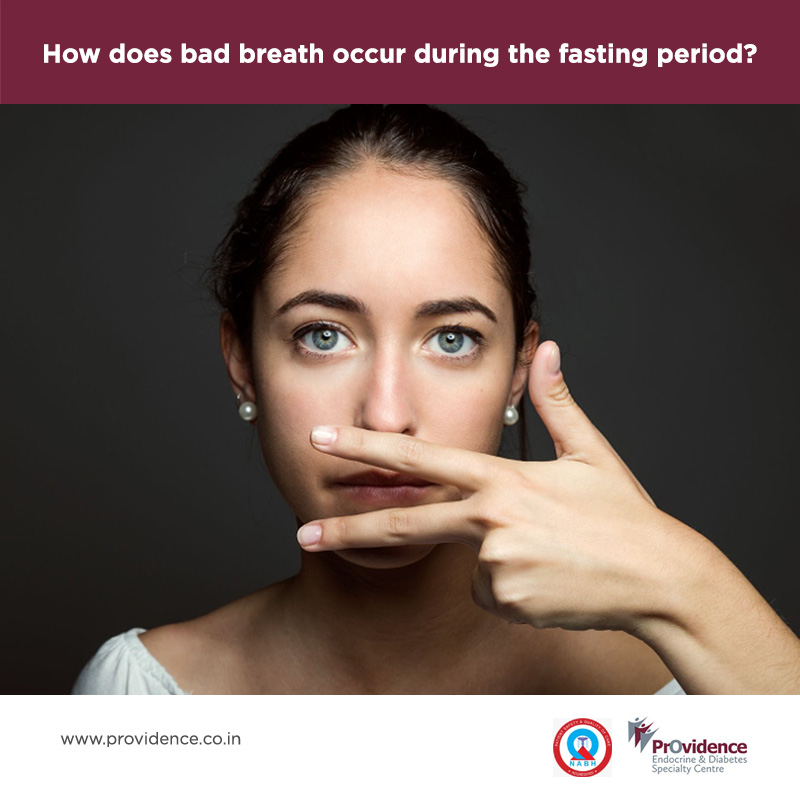Saliva plays a vital role in protecting your mouth and reducing bacterial growth. The reduction of salivary flow while fasting is the main reason for bad breath. Reduced saliva production will cause bacteria to multiply in the mouth more quickly. As a result, bacteria can produce gases that give off an unpleasant odour, causing bad breath. Once the person starts eating, the salivary glands are soon stimulated, and saliva production becomes normal. People with diabetes have higher glucose content in saliva, favouring the growth of bacteria and periodontal infections. This places them at a higher risk of bad breath. In addition, since saliva production suffers during fasting, bad breath may likely be troublesome in people with diabetes.



